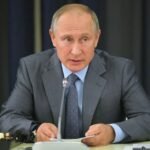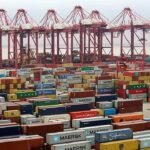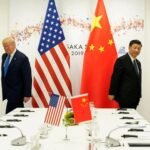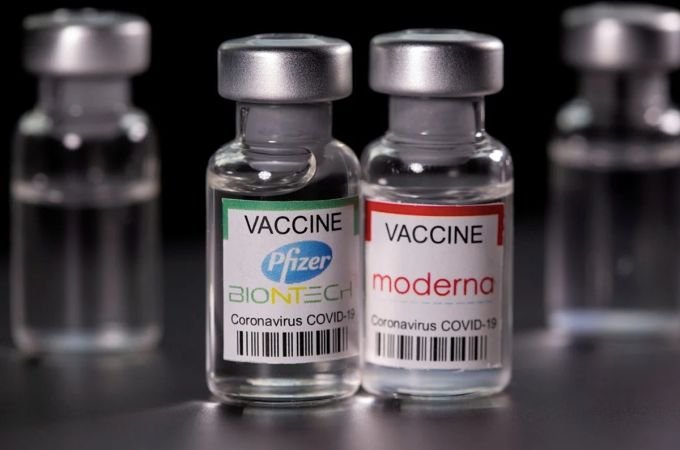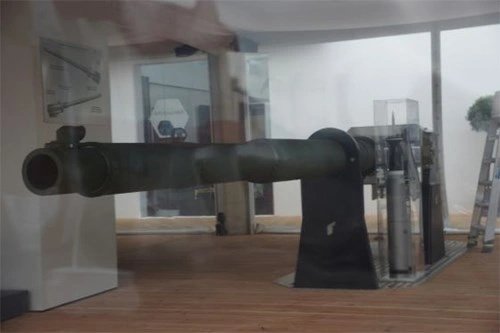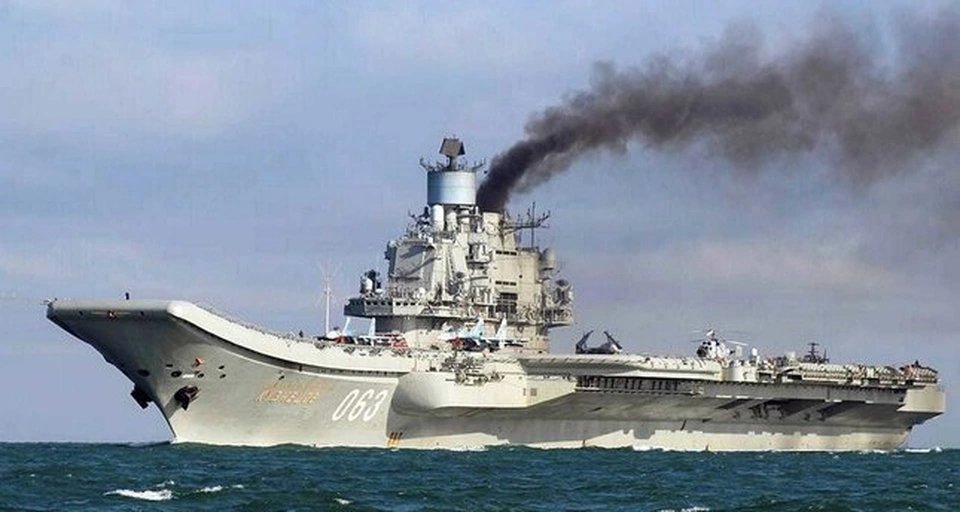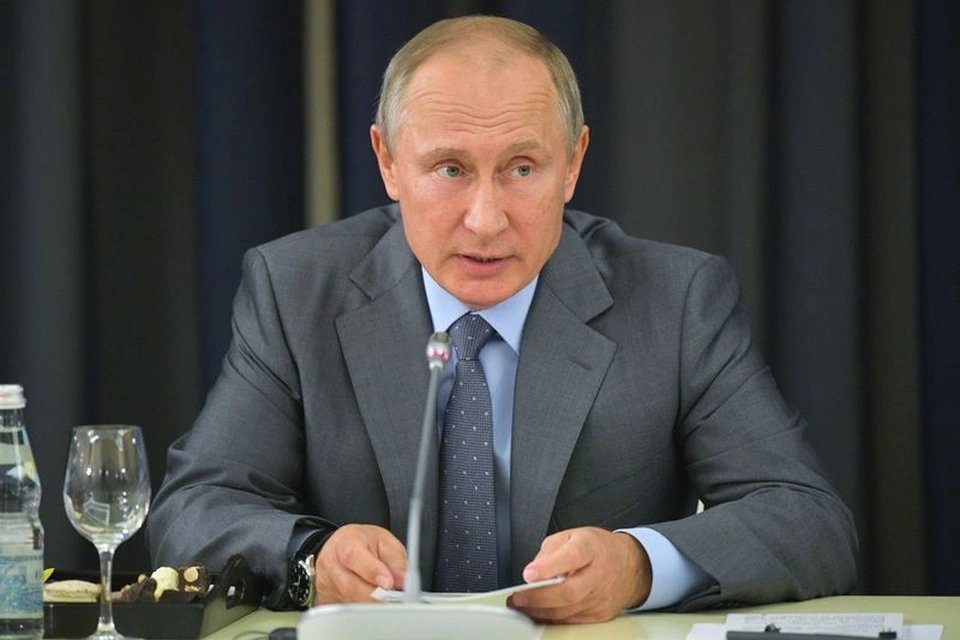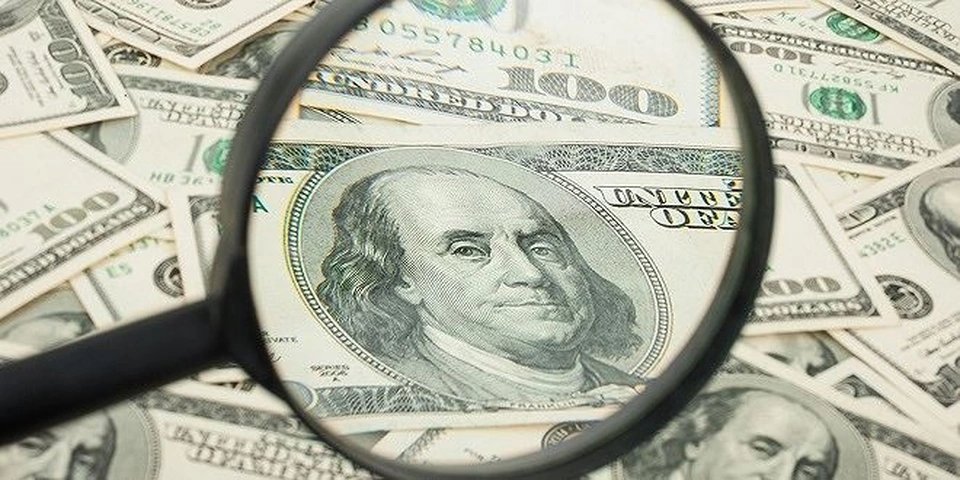Since the launch of Pfizer and Moderna’s Covid-19 mRNA vaccines, Asia-Pacific countries have struggled to find supplies.
However, for countries that did not ensure supply early on, this move has no meaning in accelerating the speed of escape from the pandemic.
`Countries have realized that they rely heavily on vaccines from elsewhere. Now, they face obstacles when dealing with a public health crisis,` said Thomas Preiss, a molecular biology expert at the University
German company BioNTech, the vaccine development unit with Pfizer, announced on May 17 that it will set up its production headquarters in Singapore, with the goal of providing hundreds of millions of mRNA doses annually.
Vials containing Covid-19 vaccines from Pfizer and Moderna are displayed in the US, February 2021.
Ooi Eng Eong, professor of emerging infectious diseases at Singapore’s Duke – NUS Medical School, said the pandemic exposed limitations in Asia’s vaccine supply capacity.
He said: `Establishing a production facility has many meanings. First, Singapore is a small country and can easily ensure domestic demand, so it is in a good position to become a regional vaccine export center.`
Ooi said that for some countries, mRNA vaccine production may be too late to respond to the pandemic.
In Korea, pharmaceutical company Moderna will reveal plans to set up a factory in the next few days.
South Korea is a contract manufacturer of the AstraZeneca, Novavax and Sputnik V vaccines. But the country’s vaccination campaign is still slow, with less than 8% of the population currently vaccinated with the first dose.
South Korea ranks second, behind the US, in bio-production capacity, according to audit network BDO.
`Once it gets the green light and transfers mRNA technology, which is technically very difficult to develop, Korea can become a big player in the market,` said Lee Hoanjong, professor emeritus of vaccines at Children’s Hospital.
In Australia, Health Minister Greg Hunt said on May 13 that the government is negotiating with Moderna about vaccine production.
Moderna previously announced that it had signed an agreement with the government to provide 10 million doses of the vaccine this year, the next 15 million doses in 2022. Canberra has spent millions of dollars to ensure the ability to produce mRNA vaccines.
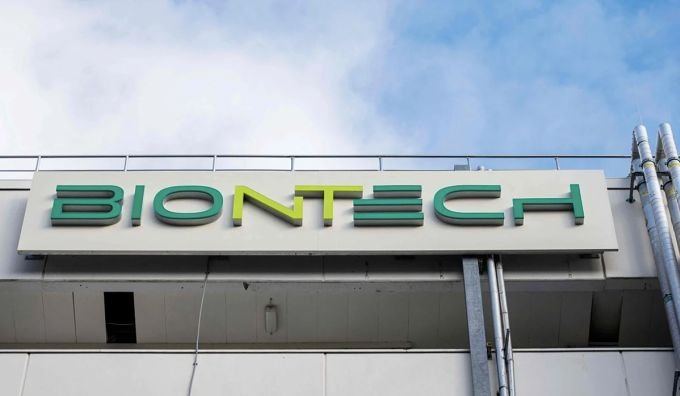
Pfizer-BioNtech vaccine production headquarters in Marburg, Germany.
Jerome Kim, general director of the International Vaccine Institute in Seoul, said that there are still many questions about whether small countries have the economic capacity to produce mRNA vaccines, or whether pharmaceutical companies will allow the use of the platform.
`I’m not sure the Australian national market can sustain an independent mRNA ‘industry’. It could be three times more expensive than the global producer. Would the government be willing to pay for a vaccine?`
Mr. Thomas Preiss commented that mRNA technology can create economic benefits in the future.
On May 12, Mr. Kidong Park, WHO representative in Vietnam, said the organization is considering transferring mRNA vaccine technology.
`If Vietnam becomes a Covid-19 vaccine technology transfer center, Vietnam will contribute to domestic and regional supply,` Mr. Park said.
Earlier this month, Deputy Minister of Health Tran Van Thuan said a number of countries, including Japan, confirmed `they will transfer Covid-19 vaccine production technology to Vietnam`.
On May 8, at the Steering Committee meeting of the Covid-19 Vaccine Production Technology Transfer Research Program, Minister of Health Nguyen Thanh Long requested urgent negotiations to purchase a full package of mRNA technology, and at the same time participate


